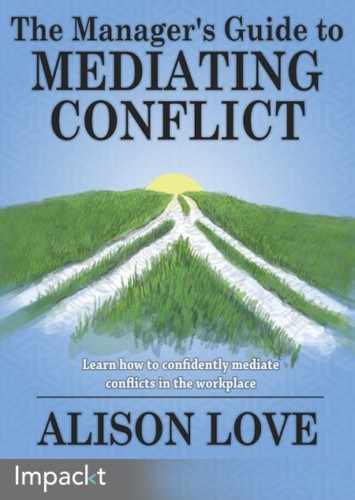Rapport is about establishing a connection with people. In the context of mediation, it is important because if you can establish rapport, the parties are far more likely to feel that they can trust you and so be more open and honest. In addition, they are more likely to feel that they have they have been understood.
One definition of rapport is as follows:
An emotional bond or friendly relationship between people based on mutual liking, trust, and a sense that they understand and share each other's concerns.
So, how do you establish rapport?
Rapport is established when there is some common connection and an alignment of body language and communication style. Most of us do this without thinking and we naturally adopt a different language when we are with people we know well. Next time you are with a group of close friends, look to see whether the group adopts similar postures and language.
The following are tips to follow in the context of mediation.
Mirroring is a rapport-building technique in which one person adopts the physical and verbal behaviors of another. It tends to happen automatically between people who know each other well. Where you don't know the person, you can adapt your behavior to mirror the body language and communication style of the other person. For example, this includes mirroring the person's tone of voice, rate of speech, posture (for example, leaning forward, or sitting up straight), hand gestures, and word choices.
Avoid mirroring accents or copying unusual phrases, because this will be noticed. It is important to be subtle! Mirroring only works on a subconscious level, so be careful not to overdo this as if it becomes obvious, it will become counterproductive and come across as insincere. The best advice is to be alert and observant to the other person's body language and words and match this accordingly.
For example:
Susie is a very tactile person who "wears her heart on her sleeve", is very expressive facially, uses a lot of animated gestures, and speaks with a quick pace at high volume. When mirroring, you are likely to touch the other person on the arm lightly, use emotional language that matches their pace, and use more gestures when speaking.
Jack, on the other hand, is very formal in his use of language, business-like in his manner, fast-paced, quite unexpressive, and not willing to engage in small talk. When mirroring, you are likely to stand tall, engage in a firm handshake, make direct eye contact, and get right down to business.
Demonstrate active listening skills by adopting appropriate body language, eye contact, non-verbal clues, and summarizing and questioning skills as explained earlier.
Often at the start of mediation, the parties will be quite skeptical about both you and the process itself. They may be reluctant to speak in any detail, nervous about what they can and can't say, and not look anyone in the eye. They have almost certainly tried to communicate how they feel previously but have not felt listened to. If you adopt open body language, maintain eye contact, react to what the person is communicating, and check your understanding, then they begin to appreciate that you are listening and understanding their perspective. You can sense that this is happening as their body language seems to relax and they become more and more open to sharing their feelings and engaging in dialog.
Appearance does matter! It should help you connect and help you to feel confident and competent. Think about who you are meeting and what to wear. If you turn up in a sharp suit when you are meeting people who work in a manufacturing environment, then this may create an immediate barrier to establishing rapport. First impressions are vital and can lay the foundation for good rapport.
Your body language should demonstrate confidence; a good handshake and smile are a very good start. If you are feeling nervous, it will leak out in your body language. If necessary, try the breathing and posture exercises mentioned earlier, or think of a situation in which you are normally confident, then visualize that and how you would feel in that situation. Don't try to portray yourself as something other than who you are; it will pay dividends if you act naturally and are open and honest.
Remember that confidence is simply a state of mind; it is not based on fact. Have you ever done a presentation and felt nervous only to be told by members of your audience how confident you appeared? Well it is exactly the same in a mediation context. It is highly likely that whatever you feel, you will appear confident to the parties (who will be far more nervous than you anyway!). Also, it is ok not to know everything and to make mistakes; after all, that is how we learn. Keep in mind this quote from the American author Helen Keller: "Optimism is the faith that leads to achievement. Nothing can be done without hope and confidence."
Small talk can be important to establish rapport and put people at ease. An example might be something about a bad start to the day or problems with your journey, for example. It reveals something about you, is something that others can relate to, and shows that you are human. Making people laugh can also be powerful and can release tension, but be careful that it is appropriate!
